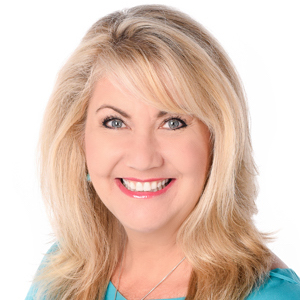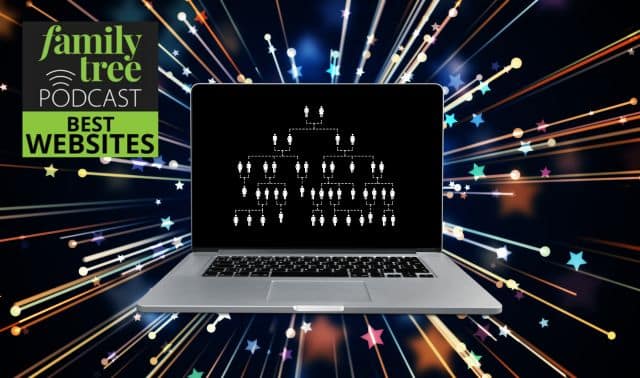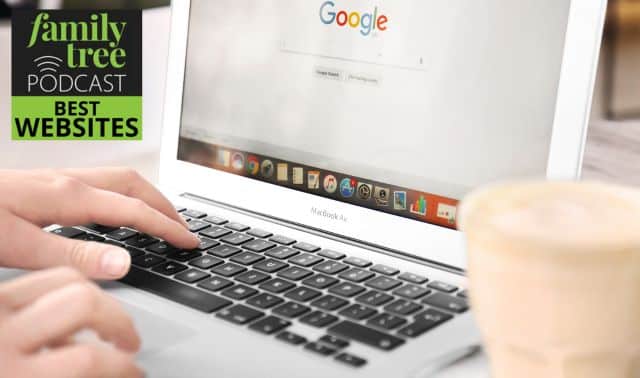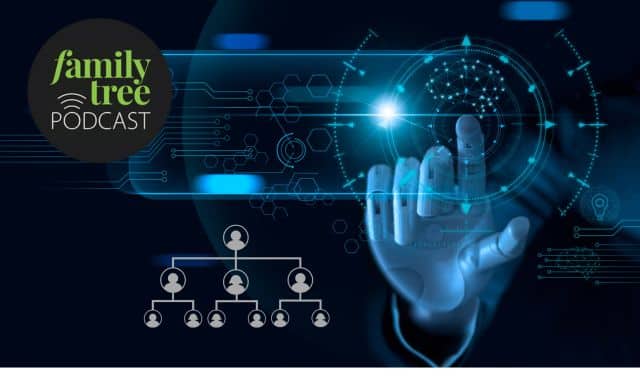Sign up for the Family Tree Newsletter Plus, you’ll receive our 10 Essential Genealogy Research Forms PDF as a special thank you!
Get Your Free Genealogy Forms
"*" indicates required fields

Learn strategies for your biggest genealogy problems, discussing the difference between DNA types and looking at FamilySearch’s Communities.
Ep. 125: October 2018
In this episode:
This Month in Family History
Andrew brings us back in time to the Chicago Fire of 1871.
ADVERTISEMENT
If you have ancestors who lived in or around the city in the early 1870s, look for property records before and after the Fire to see how this disaster may have affected your relatives.
Sources:
- https://www.britannica.com/event/Chicago-fire-of-1871
- https://en.wikipedia.org/wiki/Great_Chicago_Fire
- https://www.history.com/topics/19th-century/great-chicago-fire
- https://www.greatchicagofire.org/great-conflagration/
- https://www.thoughtco.com/the-great-chicago-fire-of-1871-1774058
Feature
Do you have some problem ancestors? Family Tree Magazine Editor Diane Haddad provides strategies for finding problem ancestors:
- Building out your tree by adding collateral family members
- Creating a timeline
- Educating yourself on locations
Resource: Six Ancestors in Six Days bootcamp
ADVERTISEMENT
DNA Deconstructed
Family Tree University instructor Shannon Combs-Bennett helps us understand a common problem in understanding our DNA results: Confusing mitochondrial DNA and the X-Chromosome.
The X-Chromosome is one of the two sex chromosomes in our body (the other being the Y-Chromosome). A person who has an X and a Y is genetically male, and a person who has two X chromosomes is genetically female. Now, there are nuances to this due to some genetic diseases in humans, but we are going to keep this simple. During reproduction a man will pass down an X or a Y chromosome to his child where as a woman can only pass on an X. Everyone has at least one X-Chromosome.
Similarly, everyone has mitochondrial DNA. A woman passes her mitochondrial DNA to all of her children. But unlike an X-Chromosome, men will not pass this information on. Mitochondrial DNA is found in the mitochondria, an organelle floating in the cytoplasm of our cells and not in the nucleus like the X-Chromosome. This is important to remember!
Why is it important? Because it will help you understand how they are inherited and why they are different. You see, an egg is a cell, and as such contains all the organelles a cell needs to survive. This includes mitochondria. Inside the cell is the nucleus which contains the autosomal chromosomes and the X-chromosome a woman will pass on. Sperm, on the other hand, is a specialized cell which contains the genetic material found in a nucleus, and this does not pass on mitochondria.
So, while the X-Chromosome and mitochondrial DNA can be associated with the women in your family they are inherited very differently and can tell you different information. The X-chromosome information is found with autosomal DNA data from an autosomal DNA test. As with any autosomal DNA test an X-Chromosome can give you information on males and females in your family tree. You will not find that information when you take a mitochondrial DNA test, which is a separate test. It gives you ancestral information solely on your direct maternal line. No other lines are associated with mitochondrial DNA tests.
Best Genealogy Websites
Author James M. Beidler offers up three great reasons to use FamilySearch’s Communities:
- Getting answers from others including Family History Library staff
- Sharing your expertise to help other genealogists
- The convenient weekly email summary on groups you follow.
Stories from the Stacks
When we head to any library it’s important to be prepared so we can make the most of our visit. Allison DePrey Singleton, Genealogy Librarian at the Allen County Public Library Genealogy Center provides tips for genealogists for making the most of their research time at the library:
- Free online databases
- Unique one of a kind digitized content can be found there that is only available online, in addition to content thanks to partners like Family History Library Books and Internet Archive
- Book a one on one in-person consultation with a staff member
This Just In
The Family Tree Scottish Genealogy Guide by Amanda Epperson.
Your Host: Lisa Louise Cooke
Listen to Lisa Louise Cooke’s Genealogy Gems and Genealogy: Family History Made Easy podcasts in iTunes and visit her website for great research ideas, podcast episodes and videos.
Have fun climbing your family tree!

ADVERTISEMENT




